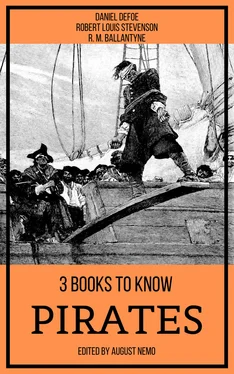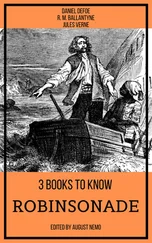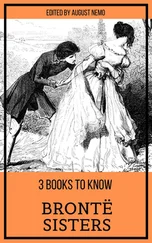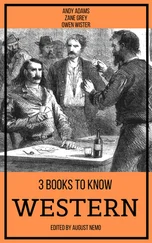“First-rate!” cried Peterkin. “You will make the bows, Jack, and I’ll try my hand at the arrows. The fact is, I’m quite tired of throwing stones at the birds. I began the very day we landed, I think, and have persevered up to the present time, but I’ve never hit anything yet.”
“You forget,” said I, “you hit me one day on the shin.”
“Ah, true!” replied Peterkin; “and a precious shindy you kicked up in consequence. But you were at least four yards away from the impudent paroquet I aimed at, so you see what a horribly bad shot I am.”
“But, Jack,” said I, “you cannot make three bows and arrows before tomorrow; and would it not be a pity to waste time, now that we have made up our minds to go on this expedition? — Suppose that you make one bow and arrow for yourself, and we can take our clubs?”
“That’s true, Ralph. The day is pretty far advanced, and I doubt if I can make even one bow before dark. To be sure, I might work by firelight after the sun goes down.”
We had, up to this time, been in the habit of going to bed with the sun, as we had no pressing call to work o’ nights; and, indeed, our work during the day was usually hard enough — what between fishing, and improving our bower, and diving in the Water Garden, and rambling in the woods — so that when night came we were usually very glad to retire to our beds. But now that we had a desire to work at night, we felt a wish for candles.
“Won’t a good blazing fire give you light enough?” inquired Peterkin.
“Yes,” replied Jack, “quite enough; but then it will give us a great deal more than enough of heat in this warm climate of ours.”
“True,” said Peterkin; “I forgot that. It would roast us.”
“Well, as you’re always doing that at any rate,” remarked Jack, “we could scarcely call it a change. But the fact is, I’ve been thinking over this subject before. There is a certain nut growing in these islands which is called the candle-nut, because the natives use it instead of candles; and I know all about it, and how to prepare it for burning —”
“Then why don’t you do it?” interrupted Peterkin. “Why have you kept us in the dark so long, you vile philosopher?”
“Because,” said Jack, “I have not seen the tree yet, and I’m not sure that I should know either the tree or the nuts if I did see them. You see, I forget the description.”
“Ah! that’s just the way with me,” said Peterkin with a deep sigh. “I never could keep in my mind for half-an-hour the few descriptions I ever attempted to remember. The very first voyage I ever made was caused by my mistaking a description — or forgetting it, which is the same thing. And a horrible voyage it was. I had to fight with the captain the whole way out, and made the homeward voyage by swimming!”
“Come, Peterkin,” said I, “you can’t get even me to believe that.”
“Perhaps not, but it’s true notwithstanding,” returned Peterkin, pretending to be hurt at my doubting his word.
“Let us hear how it happened,” said Jack, while a good-natured smile overspread his face.
“Well, you must know,” began Peterkin, “that the very day before I went to sea I was greatly taken up with a game at hockey, which I was playing with my old school-fellows for the last time before leaving them. — You see I was young then, Ralph.” Peterkin gazed, in an abstracted and melancholy manner, out to sea. —“Well, in the midst of the game, my uncle, who had taken all the bother and trouble of getting me bound ‘prentice and rigged out, came and took me aside, and told me that he was called suddenly away from home, and would not be able to see me aboard, as he had intended. ‘However,’ said he, ‘the captain knows you are coming, so that’s not of much consequence; but as you’ll have to find the ship yourself, you must remember her name and description. D’ye hear, boy?’ I certainly did hear, but I’m afraid I did not understand; for my mind was so taken up with the game, which I saw my side was losing, that I began to grow impatient, and the moment my uncle finished his description of the ship and bade me good-bye I bolted back to my game, with only a confused idea of three masts, and a green-painted taffrail, and a gilt figurehead of Hercules with his club at the bow. Next day I was so much cast down with everybody saying good-bye, and a lot o’ my female friends cryin’ horribly over me, that I did not start for the harbour, where the ship was lying among a thousand others, till it was almost too late. So I had to run the whole way. When I reached the pier, there were so many masts, and so much confusion, that I felt quite humble-bumbled in my faculties. ‘Now,’ said I to myself, ‘Peterkin, you’re in a fix.’ Then I fancied I saw a gilt figurehead and three masts belonging to a ship just about to start; so I darted on board, but speedily jumped on shore again when I found that two of the masts belonged to another vessel and the figurehead to a third! At last I caught sight of what I made sure was it — a fine large vessel just casting off her moorings. The taffrail was green. Three masts — yes, that must be it — and the gilt figurehead of Hercules. To be sure, it had a three-pronged pitchfork in its hand instead of a club; but that might be my uncle’s mistake, or perhaps Hercules sometimes varied his weapons. ‘Cast off!’ roared a voice from the quarter-deck. ‘Hold on!’ cried I, rushing frantically through the crowd. ‘Hold on! hold on!’ repeated some of the bystanders, while the men at the ropes delayed for a minute. This threw the captain into a frightful rage; for some of his friends had come down to see him off, and having his orders contradicted so flatly was too much for him. However, the delay was sufficient. I took a race and a good leap; the ropes were cast off; the steam-tug gave a puff, and we started. Suddenly the captain walks up to me: ‘Where did you come from, you scamp, and what do you want here?’
“‘Please, sir,’ said I, touching my cap, ‘I’m your new ‘prentice come aboard.’
“‘New ‘prentice!’ said he, stamping; ‘I’ve got no new ‘prentice. My boys are all aboard already. This is a trick, you young blackguard! You’ve run away, you have!’ And the captain stamped about the deck and swore dreadfully; for, you see, the thought of having to stop the ship and lower a boat and lose half-an-hour, all for the sake of sending a small boy ashore, seemed to make him very angry. Besides, it was blowin’ fresh outside the harbour, so that to have let the steamer alongside to put me into it was no easy job. Just as we were passing the pier-head, where several boats were rowing into the harbour, the captain came up to me.
“‘You’ve run away, you blackguard!’ he said, giving me a box on the ear.
“‘No, I haven’t!’ said I angrily, for the box was by no means a light one.
“‘Hark’ee, boy, can you swim?’
“‘Yes,’ said I.
“‘Then do it!’ and seizing me by my trousers and the nape of my neck, he tossed me over the side into the sea. The fellows in the boats at the end of the pier backed their oars on seeing this; but observing that I could swim, they allowed me to make the best of my way to the pier-head. — So you see, Ralph, that I really did swim my first homeward voyage.”
Jack laughed, and patted Peterkin on the shoulder.
“But tell us about the candle-nut tree,” said I. “You were talking about it.”
“Very true,” said Jack; “but I fear I can remember little about it. I believe the nut is about the size of a walnut; and I think that the leaves are white, but I am not sure.”
“Eh! ha! hum!” exclaimed Peterkin; “I saw a tree answering to that description this very day.”
“Did you?” cried Jack. “Is it far from this?”
Читать дальше












